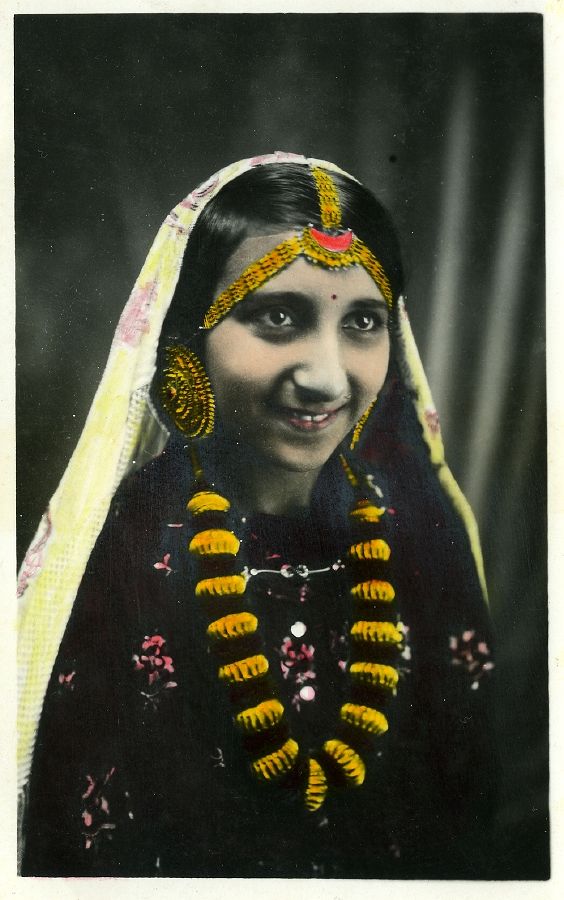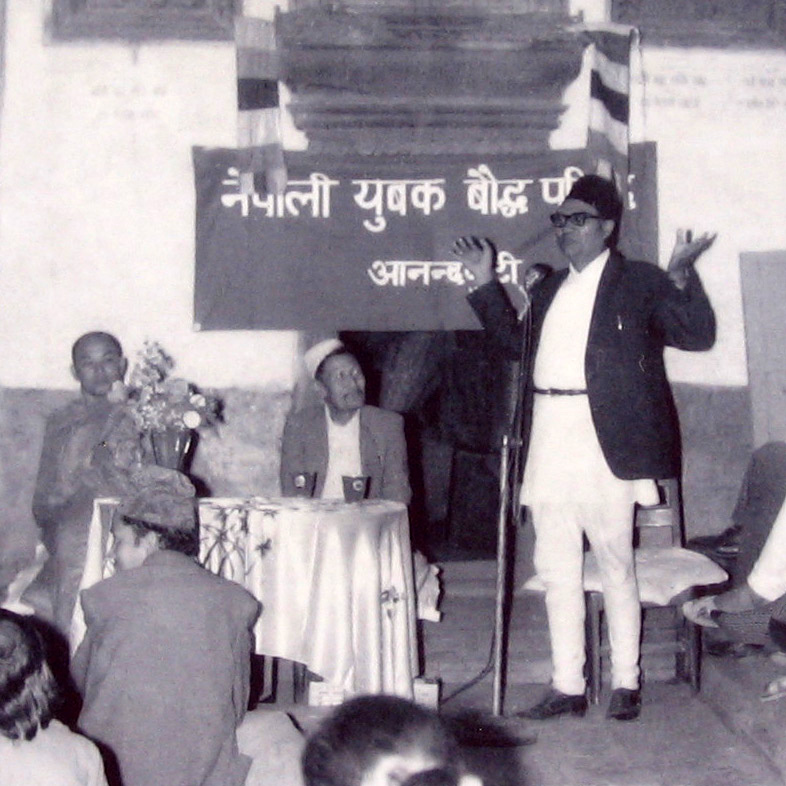|
Women In The Nepalese Civil War
Women were a significant group who were involved in the Maoist movement during the Nepalese Civil War, which refers to a violent insurgency that took place from 1996 to 2006. The insurgency was led by the Communist Party of Nepal (Maoist) (1994), Communist Party of Nepal (Maoist) (Nepali language, Nepali: नेपाल कम्युनिष्ट पार्टी (माओवादी-केन्द्र), or CPN (M-C) with the aim of establishing a People's Republic, People's Republic and ending the rule of the Kingdom of Nepal, Nepalese Monarchy. During this time, over 13,000 civilians and public officials were murdered, approximately 200,000 were displaced, and numerous others were tortured, extorted, and intimidated. Although the majority of Maoist insurgents were men, the Communist Party of Nepal (Maoist-Centre), Maoist Party claimed that up to 40 percent of their 19,000 combatants were women. This was regarded as an unprecedented move at the time, given that women wer ... [...More Info...] [...Related Items...] OR: [Wikipedia] [Google] [Baidu] |
Nepalese Civil War
The Nepalese Civil War was a protracted armed conflict that took place in the former Kingdom of Nepal from 1996 to 2006. It saw fighting between the Nepalese royal government and the Communist Party of Nepal (Maoist) throughout the country. The conflict began on 13 February 1996, when the Communist Party of Nepal initiated an insurgency with the stated purpose of overthrowing the Nepalese monarchy and establishing a people's republic; it ended with the signing of the Comprehensive Peace Accord on 21 November 2006. The insurgency was characterized by numerous war crimes and crimes against humanity, including summary executions, massacres, purges, kidnappings, and mass rapes. It resulted in the deaths of over 17,000 people, including civilians, insurgents, and army and police personnel; and the internal displacement of hundreds of thousands of people, mostly throughout rural Nepal. The Truth and Reconciliation Commission has received about 63,000 complaints, as reported by ... [...More Info...] [...Related Items...] OR: [Wikipedia] [Google] [Baidu] |
Devi Khadka
Devi Khadka is a Nepalese communist politician from Dolakha, currently in the House of Representatives. Life and career Devi Khadka, a local of Dolakha, was a participant in the Nepalese Civil War, specifically joining the Communist Party of Nepal (Maoist) faction against the reigning monarchical government. Citing the oppression of the poor, the expropriation of her father's possessions, and the murder of her brother, Rit Bhadkur Khadka, by security forces, she participated in the 1990 People's Movement protests to liberalize the absolute monarchy. She later joined the Maoists in 1996 with the outbreak of the civil war initiated to introduce a People's Republic. During the civil war, Khadka served as founding chair of the Maoist-affiliated All Nepal Women's Association (Revolutionary). In 1997, she was arrested, disappeared for a month, and repeatedly raped in police custody for four months. In 1999, she served as a military commander in Dolakha, Sindhupalchok, Okhaldh ... [...More Info...] [...Related Items...] OR: [Wikipedia] [Google] [Baidu] |
Women In Nepal
The status of women in Nepal has varied throughout history. In the early 1990s, like in some other Asian countries, women in Nepal were generally subordinate to men in virtually every aspect of life. Historically, Nepal has been a predominantly patriarchal society where women are generally subordinate to men. Men were considered to be the leader of the family and superior to women. Also, social norms and values were biased in favor of men. This strong bias in favor of sons in society meant that daughters were discriminated against from birth and did not have equal opportunities to achieve all aspects of development.Bhattarai, Arjun Kumar. “How rural women experience disempowered in Nepal : an empirical study on women experience as the main obstacles to their disempowerment in their everyday lives”. Universitetet i Nordland, 2014. Daughters were deprived of many privileges, including rights, education, healthcare, parental property rights, social status, last rites of dead pa ... [...More Info...] [...Related Items...] OR: [Wikipedia] [Google] [Baidu] |
Women In Warfare Post-1945
A woman is an adult female human. Prior to adulthood, a female human is referred to as a girl (a female child or adolescent). The plural ''women'' is sometimes used in certain phrases such as "women's rights" to denote female humans regardless of age. Typically, women inherit a pair of X chromosomes, one from each parent, and are capable of pregnancy and giving birth from puberty until menopause. More generally, sex differentiation of the female fetus is governed by the lack of a present, or functioning, SRY-gene on either one of the respective sex chromosomes. Female anatomy is distinguished from male anatomy by the female reproductive system, which includes the ovaries, fallopian tubes, uterus, vagina, and vulva. A fully developed woman generally has a wider pelvis, broader hips, and larger breasts than an adult man. Women have significantly less facial and other body hair, have a higher body fat composition, and are on average shorter and less muscular than men. Througho ... [...More Info...] [...Related Items...] OR: [Wikipedia] [Google] [Baidu] |
History Of Nepal (1951–2008)
The history of Nepal is intertwined with the history of the broader Indian subcontinent and the surrounding regions, comprising the areas of South Asia and East Asia. Nepal is a multi-ethnic, multiracial, multicultural, multi-religious, and multilingual country. The most spoken language is Nepali followed by several other ethnic languages. The Kingdom of Nepal was established in 1768 and started a campaign of unifying what would form the modern territories of Nepal. Some former territories had been lost due to the Sino-Nepalese War. The conflict ended with both victories and losses with the kingdom ultimately accepting tributary status with the Qing dynasty of China from 1792 to 1865. The Anglo-Nepalese War ended in British victory and ceded some Nepalese territory. In a historical vote for the election of the constituent assembly, the Nepalese parliament voted to abolish the monarchy in June 2006. Nepal became a federal republic on 28 May 2008 and was formally renamed the 'F ... [...More Info...] [...Related Items...] OR: [Wikipedia] [Google] [Baidu] |
Marxist Feminism
Marxist feminism is a philosophical variant of feminism that incorporates and extends Marxist theory. Marxist feminism analyzes the ways in which women are exploited through capitalism and the individual ownership of private property. According to Marxist feminists, women's liberation can only be achieved by dismantling the capitalist systems in which they contend much of women's labor is uncompensated. Marxist feminists extend traditional Marxist analysis by applying it to unpaid domestic labor and sex relations. Because of its foundation in historical materialism, Marxist feminism is similar to socialist feminism and, to a greater degree, materialist feminism. The latter two place greater emphasis on what they consider the "reductionist limitations" of Marxist theory but, as Martha E. Gimenez notes in her exploration of the differences between Marxist and materialist feminism, "clear lines of theoretical demarcation between and within these two umbrella terms are somewhat diffi ... [...More Info...] [...Related Items...] OR: [Wikipedia] [Google] [Baidu] |
Maoism In Nepal
Maoism, officially called Mao Zedong Thought by the Chinese Communist Party, is a variety of Marxism–Leninism that Mao Zedong developed to realise a socialist revolution in the agricultural, pre-industrial society of the Republic of China and later the People's Republic of China. The philosophical difference between Maoism and traditional Marxism–Leninism is that the peasantry is the revolutionary vanguard in pre-industrial societies rather than the proletariat. This updating and adaptation of Marxism–Leninism to Chinese conditions in which revolutionary praxis is primary and ideological orthodoxy is secondary represents urban Marxism–Leninism adapted to pre-industrial China. Later theoreticians expanded on the idea that Mao had adapted Marxism–Leninism to Chinese conditions, arguing that he had in fact updated it fundamentally, and that Maoism could be applied universally throughout the world. This ideology is often referred to as Marxism–Leninism–Maoism to d ... [...More Info...] [...Related Items...] OR: [Wikipedia] [Google] [Baidu] |
Women In War In South Asia
A woman is an adult female human. Prior to adulthood, a female human is referred to as a girl (a female child or adolescent). The plural ''women'' is sometimes used in certain phrases such as "women's rights" to denote female humans regardless of age. Typically, women inherit a pair of X chromosomes, one from each parent, and are capable of pregnancy and giving birth from puberty until menopause. More generally, sex differentiation of the female fetus is governed by the lack of a present, or functioning, SRY-gene on either one of the respective sex chromosomes. Female anatomy is distinguished from male anatomy by the female reproductive system, which includes the ovaries, fallopian tubes, uterus, vagina, and vulva. A fully developed woman generally has a wider pelvis, broader hips, and larger breasts than an adult man. Women have significantly less facial and other body hair, have a higher body fat composition, and are on average shorter and less muscular than men. Througho ... [...More Info...] [...Related Items...] OR: [Wikipedia] [Google] [Baidu] |
Pir (song)
Pir (Nepali: पीर) is a Nepali song composed and sung by Prakash Saput featuring Prakash Saput and Surakshya Panta on the lead; an aftermath of the Maoist armed forces who risked their lives to offer the country a new system and flung firearms but did not receive proper life they fought for, released on March 12, 2022. Background and composition ''Pir'' was composed by Prakash Saput, sung by Prakash Saput and Samjhana Bhandari. The song contains a distinct folk rhythm. Controversies The song had to face many controversies after its release due to its portrayal of ex female Maoist's as a sex worker. Many Maoist's personnel have condemned the way song has portrayed the lack of a female guerrilla fighting the Maoist people's war through prostitution. Plus the song is also alleged as a conspiracy to affect the Maoist's position in upcoming local election. Pushpa Kamal Dahal (Prachanda) chairman of CPN Maoist Centre has expressed his view to not oppose the song. After the c ... [...More Info...] [...Related Items...] OR: [Wikipedia] [Google] [Baidu] |
Dharma Ratna Yami
Dharma Ratna Tuladhar, popularly known as Dharma Ratna Yami ( ne, धर्मरत्न यमी) was a Nepalese government deputy minister, activist and Newa language writer While serving eighteen years jail term, he changed his surname from Tuladhar to ''Yami'' (meaning an inhabitant of Kathmandu in Nepal Bhasa) and identified himself as Newa. He in the jail to unite and organized communities against the Rana rulers. Early life Yami was born to father Bhawani Ratna, son of rich business merchant Late Ratna Das Tuladhar and Mother Devi Maya Tuladhar at Asan Kamalachhi (), Kathmandu. His was an affluent merchant family which was made penniless after the Rana regime confiscated their property. Yami was schooled at home. In 1930, he traveled to Lhasa and worked in the business house of Dharma Man Tuladhar. In Tibet, he came in contact with Mahapandit Rahul Sankrityayan; and under his influence and inspiration, he studied books on various subjects and began writing himself. ... [...More Info...] [...Related Items...] OR: [Wikipedia] [Google] [Baidu] |


.jpg)
.jpg)


